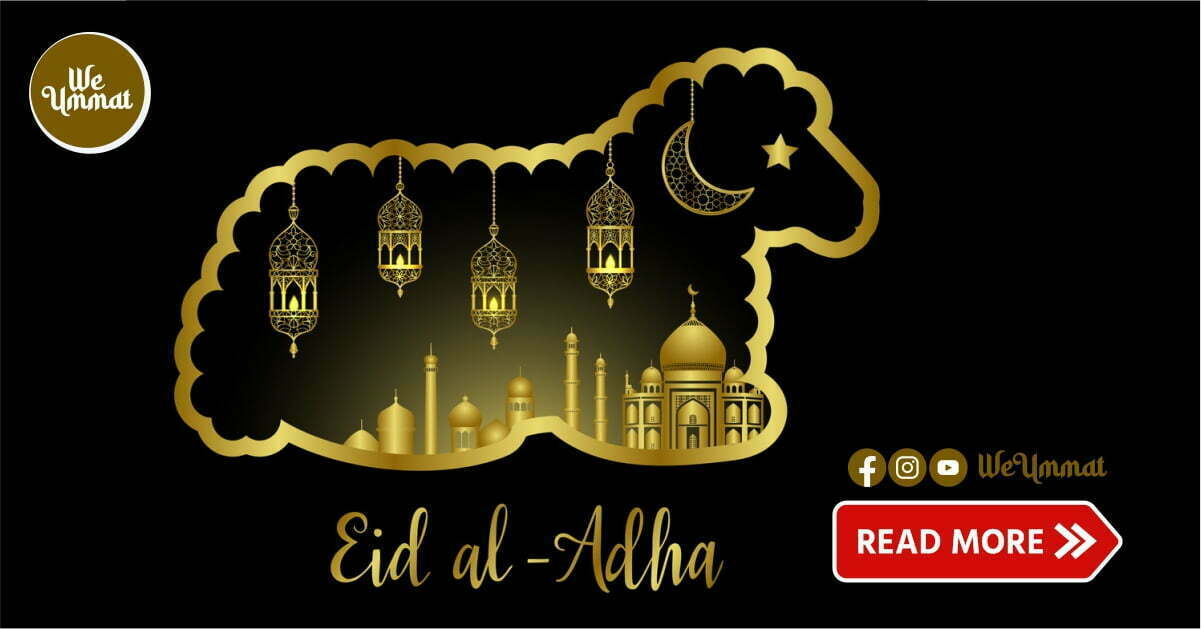


As the date approaches for the significant Islamic holiday of Eid ul-Adha, preparations are underway worldwide. The festival, which honors Prophet Ibrahim's obedience to God, involves the ritual sacrifice of an animal, with the meat being shared among family, friends, and the needy. The 2024 celebration is expected to take place in mid-June, with key dates varying for different regions of the world. This joyful and unifying festival is a time of reflection and community spirit for Muslims around the globe.
Eid al-Adha: A Festival of Sacrifice and Unity
Background
Eid al-Adha is the second and greatest of the two major Islamic holidays. It commemorates the willingness of Prophet Ibrahim (Abraham) to sacrifice his son, Ismail, as an act of obedience to God. In Islamic tradition, God intervened and provided a ram to be sacrificed instead of Ismail.
The holiday is celebrated during the month of Dhuʻl-Hijjah, the final month of the Islamic calendar. The date of Eid al-Adha is determined by the sighting of the new moon.
Observances
Eid al-Adha is a day of sacrifice and celebration. Muslims worldwide sacrifice an animal, typically a sheep, goat, cow, or camel. The meat is then divided into three parts: one-third is consumed by the family, one-third is given to friends and neighbors, and one-third is donated to the needy.
In addition to the ritual sacrifice, Eid al-Adha is also a day for prayer, community gatherings, and feasting. Muslims attend special prayers in mosques and gather with their families and friends to share meals and celebrate the holiday.
Hajj Pilgrimage
Eid al-Adha coincides with the annual Hajj pilgrimage to Mecca, Saudi Arabia. The Hajj is one of the five pillars of Islam, and every able-bodied Muslim is expected to perform it at least once in their lifetime.
The Hajj is a spiritual journey that involves several rituals, including circumambulating the Kaaba, the holiest site in Islam, and throwing pebbles at the Jamarat, which represent the devil.
Top 5 FAQs
1. When is Eid al-Adha celebrated? The date of Eid al-Adha varies from year to year, depending on the sighting of the new moon.
2. What is the significance of Eid al-Adha? Eid al-Adha commemorates the sacrifice of Prophet Ibrahim and represents the willingness of Muslims to submit their will to God.
3. What is the ritual sacrifice? The ritual sacrifice is the most important aspect of Eid al-Adha. An animal is sacrificed and the meat is divided into three parts: for the family, for friends and neighbors, and for the needy.
4. Who can perform the Hajj pilgrimage? Every able-bodied Muslim is expected to perform the Hajj at least once in their lifetime.
5. What are the key dates for Eid al-Adha 2024? The expected dates for Eid al-Adha 2024 are June 19-23.

India and the United States have strengthened their already strong ties by signing a 10-year framework for their major defense partnership. The agreement, signed during a bilateral meeting between the two countries' defense ministers, emphasizes the importance of this partnership in maintaining a free and open Indo-Pacific region. This marks a significant step in solidifying the bond between India and the US in the defense sector.

In preparation for a major tri-service military drill, India has issued Notices to Airmen (NOTAM) for the entire northeastern region that borders China, Bhutan, Myanmar, and Bangladesh. The first set of exercises will commence in November and continue through January, signaling enhanced operational readiness for the Indian Air Force (IAF). This move is significant as the Northeast remains a sensitive theater, making up the boundary with four countries, including China. The upcoming IAF exercises aim to strengthen India's air dominance, effectively preparing for any potential challenges along the western frontier with Pakistan.

India will conduct a 10-day military exercise in Rajasthan and Gujarat involving the Army, Air Force, and Navy to showcase its operational readiness following Operation Sindoor earlier this year. The exercise, announced through a NOTAM, features advanced military technologies and emphasises the integration of speed, firepower, and precision in desert warfare conditions. It comes amidst heightened tensions with Pakistan and a renewed focus on maintaining military readiness along the border.

Jammu and Kashmir police have filed an FIR against a group of Christian missionaries in Kathua district for allegedly attempting religious conversions through financial incentives. This comes after a video surfaced online showing the missionaries being attacked and their vehicle vandalized by villagers. The incident has sparked outrage and protests from local Hindu groups, demanding action against the accused missionaries. One accused, Ravindra Singh Thela, has been arrested while the main accused, Vivek Soni, is still at large. The police have also suspended eight personnel for failing to stop the attack.

US Vice President JD Vance, who converted to Catholicism in 2019, has revealed that he hopes his Hindu-raised wife, Usha Vance, will eventually embrace Christianity. However, he clarifies that their interfaith marriage is built on mutual respect and understanding, and that Usha has complete freedom of choice in matters of faith. The couple has found a balanced way to manage their interfaith household, with their children attending a Christian school and given the choice to be baptized.

US President Donald Trump has expressed optimism about reaching a trade deal with China "pretty soon" after a meeting with Chinese President Xi Jinping in South Korea. In addition to announcing lower tariffs on Chinese imports, Trump also stated that the issue over US access to rare earths has been resolved. However, there has been no official response from Beijing and the final decision on the sale of Chinese-owned TikTok's US operations is still pending. Analysts see these developments as a breakthrough in the ongoing trade tensions between the two countries. Our correspondents provide insight on the discussions between the two leaders and speculate on why Xi may have felt confident walking into the meeting.

At the Asia-Pacific Economic Cooperation (APEC) Summit in South Korea, Chinese President Xi Jinping and US President Donald Trump met for their first in-person talks in several years. Despite past frictions, Xi called for closer cooperation between the two largest economies in the world, emphasizing the importance of being "partners and friends." Acknowledging Trump's peace efforts in the Middle East, Xi commended his contributions and praised him as a "tough negotiator." Trump also expressed optimism for a productive discussion on trade and global security.

In a historic event, Prime Minister Shri Narendra Modi addressed the Global Maritime Leaders Conclave and chaired the Global Maritime CEO Forum at India Maritime Week 2025 in Mumbai, welcoming participants from over 85 countries. With major shipping giants, startups, policymakers, and innovators in attendance, the summit showcased India's advancements in the maritime sector, such as the replacement of outdated colonial laws with modern ones and the recognition of large ships as infrastructure assets. Amidst global tensions, India stands as a symbol of strategic autonomy and inclusive growth, ready to take on a leading role in the world's rough seas.

Indian Prime Minister Narendra Modi has declared that the next generation of Goods and Services Tax (GST) reforms will begin on the first day of the Navratri festival. This major economic overhaul aims to streamline the current GST system and support businesses, especially small and medium enterprises. In other news, the National Human Rights Commission (NHRC) and Ministry of External Affairs (MEA) are collaborating to organize a six-day program in New Delhi to strengthen executive capacity for International Technical and Economic Cooperation (ITEC). Lastly, the upcoming BIRC 2025 conference will take place at the Bharat Mandapam in New Delhi.

Indian Prime Minister Narendra Modi is set to address the Global Maritime CEO Forum and Maritime Leaders Conclave at India Maritime Week (IMW) 2025 in Mumbai on Wednesday. The event will bring together global maritime leaders, investors, policymakers, and innovators to discuss sustainable growth and inclusive blue economy strategies, showcasing India's efforts towards becoming a leading maritime power. With the theme 'Uniting Oceans, One Maritime Vision' and participation from over 85 countries, the event will highlight India's commitment towards maritime sustainability and climate responsibility.